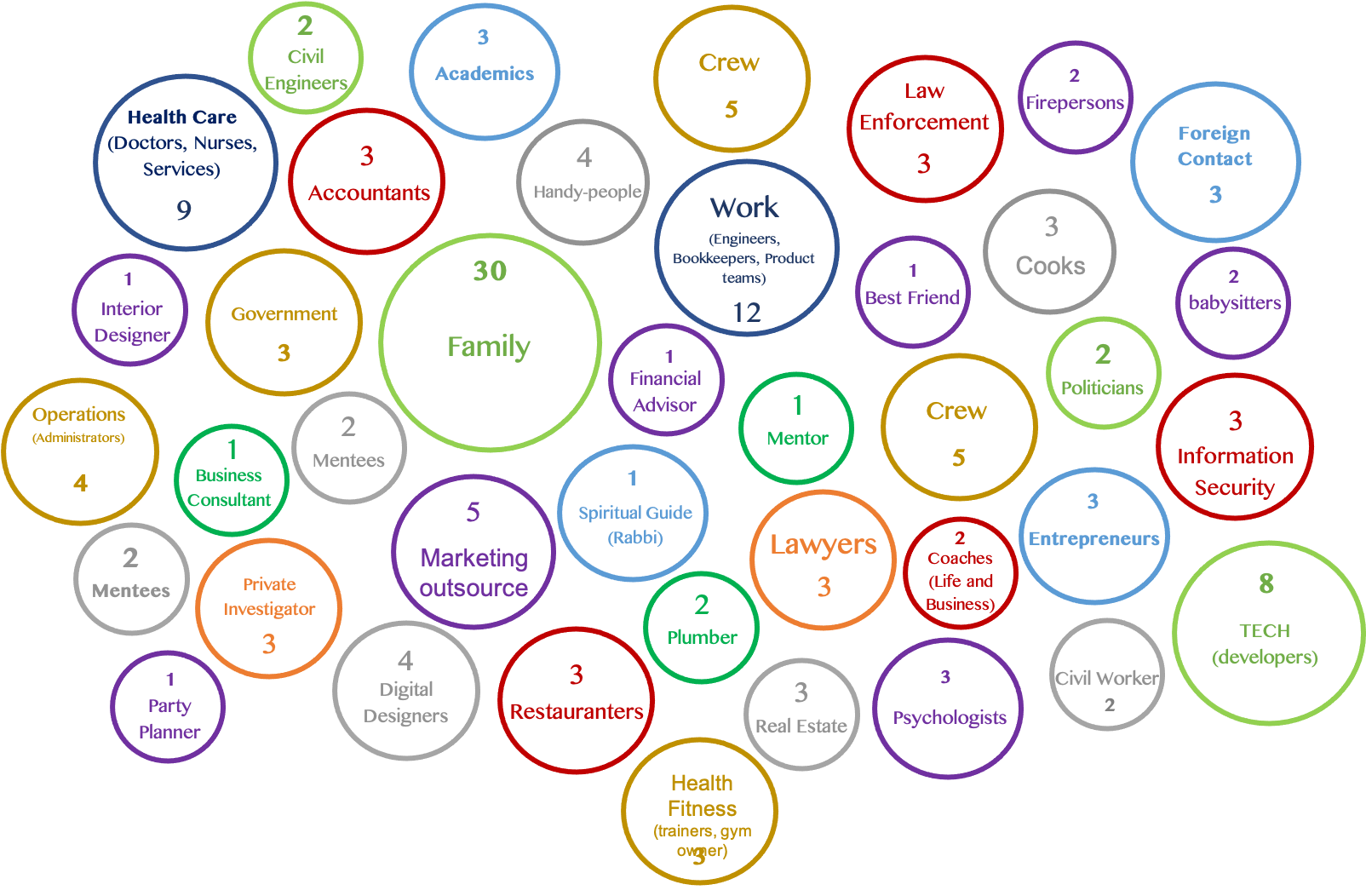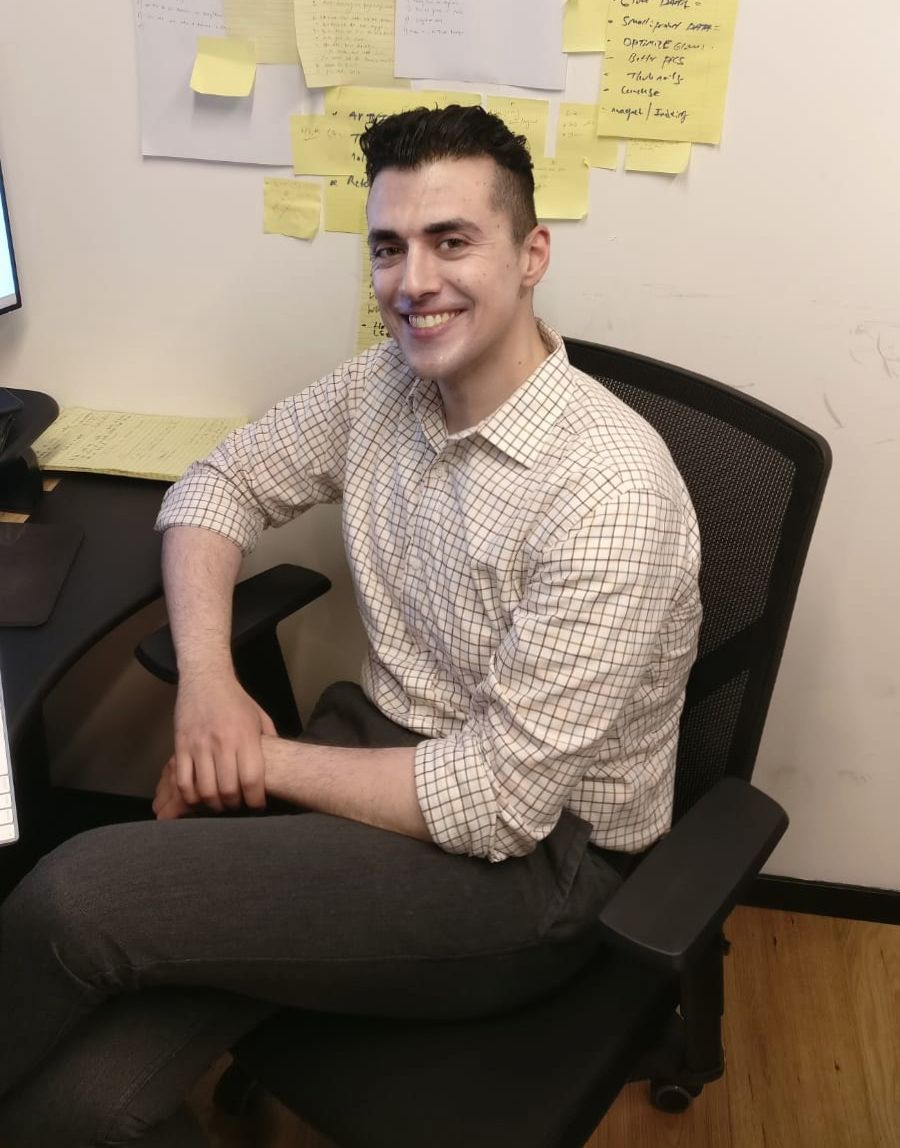We’ve already addressed the importance of having close friends. Here, we’ll be discussing moving beyond that 1st degree network of our intimates and broadening it to reach new people, basically, acquaintances.
Obtaining a Network
Acquaintances are crucial in the journey of self productivity as they offer more diversity than our close friends, who are by contrast very similar to ourselves and our beliefs. Acquaintances are going to be the ones who will offer you new information and knowledge as they know people, places and ideas that you may not be familiar with. They connect us to broader social networks and in our growing urban lives this is key to capitalize on.
Once again, Industrious Framework is a very opinionated framework and therefore we have set out the best way to create these expanded networks and it entails the following:
- Dunbar's Number
- Balanced Network
- Focus on Your Specialty
Dunbar's Number
First proposed in 19990 by British Anthropologist, Robin Dunbar, Dunbar’s Number is a suggested cognitive limit to the number of people with whom one can maintain stable social relationships—relationships in which an individual knows who each person is and how each person relates to every other person.
Dunbar maintained that number was 150 people. Although modern critics have argued that number largely due to the increase in virtual networking and social media, many still claim 150 to be the golden number. From this principle the Industrious Framework maintains a stance on having a close knit circle of 150 people.
Example Dunbar Network
The following is an example of my personal Dunbar network. These are the people or social groups I have mapped out amongst my family, friends, work colleagues and all other acquaintances to give the highest priority in getting to know. I wrote down their professions or knowledge base these people have as a way to show the diversity of information I can access by just maintaining a connection.

Now it’s your turn to create your own Dunbar's list. Create a folder in your Google Drive called "Dunbar Network" and inside a Google Sheet file, let’s say, "Dunbar Network" with categories; Name of Social Group, Amount of People and Information/Notes.
Balanced Networking
There are many ways to network. Even within the virtual vs in-person networking there are many avenues to explore. Take advantage of the plethora of resources in the modern era. Here are some ways to network:
Conferences
Conferences are great for networking especially when they are focused on what you want to learn or connect with. Perhaps someone you have been keen to meet but have not had the opportunity to, has posted on their Linkedin that they will be attending a conference. This is a great way to get to that person, and alike. By scoping out conferences that meet your target social networks, you will be able to efficiently and in an easy manner network. Conferences are made for networking and very often have round tables, coffee breaks and networking activities at the events. Use Eventbrite, Linkedin and Meetup to find conferences near you.
Social Events
The Industrious Framework weighs social events less in regards to networking because the theme of social events is usually more centered around dating, friends and leisure. However, attending a social event that is centered around topics you enjoy and are interested in, then definitely use those events as an opportunity to network. For example, a wine drinking event at a museum could curate ideas and knowledge of history, wine making, wine tasting etc. Or a trivia night with friends at a bar could also lead you to meeting others with similar drives. Feel free to attend any social event but transform it into what the framework insists on, which is to implement strategies for networking.
Corporate Sponsored Events
In my experience, if you're eyeing a chance at an interview at or a connection with a certain company, there is no better way to do this than to go to a corporate sponsored event by that company. Usually, you can find which events a company is sponsoring by going to their website’s events page. There will always be a representative from the company plus, employees themselves tend to go to sponsored events because they’re paid for by the company, they earn employer trust from attending and they like to make impacts beyond their immediate duties. Which leads you to the perfect opportunity to simply go up to one of the employees (maybe they are at a booth, or wearing a company name tag) and discuss your interest in working there. If your qualifications and experience is something they are looking for, you will most likely get an interview or at least an email to further connect.
Other
There are other types of networking events:
- Industry-Specific Seminars
- Virtual Groups(webinars, zoom meetups)
- Career Fairs
- Trade Shows
- Breakfasts/Luncheon Meetings
- Community Service Groups
- Speed Networking
- Roundtable Discussions
Just to make a point, however, digital networking will ultimately be more effective. in many scenarios.
Digital Marketing
Digital networking is one of the most powerful tools in networking today and was only accelerated by the last years of COVID 19.
“I am __ and I am interested in getting involved with __ ”. This is my favorite go-to-tool for making introductions on Linkedin. Anyone is accessible these days so the challenge is not in finding the right people to network, but in how to approach them. Since this is essential for today’s networking, we plan to dedicate a section to discuss it in more detail. For now, try and hone in on one person you really want to connect with and start from there. I’ll never forget the time I found a potential candidate that was in a unique position to help my company. I dropped everything I was doing at the time, put all my eggs in one basket, and focused on getting to them.
Focus on Your Speciality
This brings us to the last point to The Obtaining a Network Framework: Focus.
Expand your circle, network and reach out online, but focus on the areas that pertain the most to you, or your speciality. I am most interested in tech and software development so, the conferences, linkedin outreach and social events I attend are mostly centered around that. I am interested in meeting more business developers, marketers and other professionals not in software development, but I keep the networking focused around tech so those non developer professionals are still within my focus. Like, a marketing specialist in the field of SaaS, or an event planner who is well connected to AI companies.
Once you’ve assessed, balanced and focused on the people you want to meet and mediums you want to use to get there, you will see obtaining a network will come easily. After that, it’s all about maintaining the network which we will expand on in the next part of the framework.

